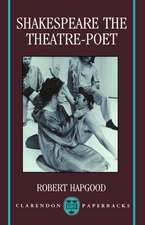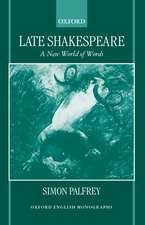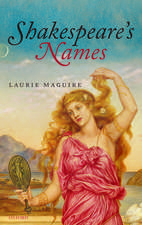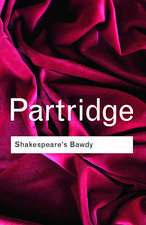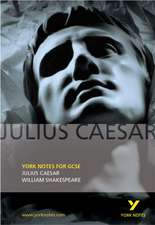Power and Passion in Shakespeare's Pronouns: Interrogating 'you' and 'thou'
Autor Penelope Freedmanen Limba Engleză Hardback – 13 apr 2007
Preț: 374.54 lei
Nou
Puncte Express: 562
Preț estimativ în valută:
71.68€ • 74.56$ • 59.17£
71.68€ • 74.56$ • 59.17£
Carte tipărită la comandă
Livrare economică 14-28 aprilie
Preluare comenzi: 021 569.72.76
Specificații
ISBN-13: 9780754658306
ISBN-10: 0754658309
Pagini: 294
Ilustrații: Includes 6 b&w illustrations
Dimensiuni: 156 x 234 x 27 mm
Greutate: 0.57 kg
Ediția:New ed
Editura: Taylor & Francis
Colecția Routledge
Locul publicării:Oxford, United Kingdom
ISBN-10: 0754658309
Pagini: 294
Ilustrații: Includes 6 b&w illustrations
Dimensiuni: 156 x 234 x 27 mm
Greutate: 0.57 kg
Ediția:New ed
Editura: Taylor & Francis
Colecția Routledge
Locul publicării:Oxford, United Kingdom
Cuprins
Contents: Preface; Introduction; The Merry Wives of Windsor: a paradigm of usage; Earlier comedies: Two Gentlemen of Verona to The Merchant of Venice; Later comedies and romances: Much Ado About Nothing to Two Noble Kinsmen; The tragedies; The histories; Conclusions; Appendix: a note on the sonnets; Glossary of linguistic terms; Bibliography; Indexes.
Recenzii
’In helping us learn to become attentive to how Shakespeare uses the complex relationships of you and thou in articulating a wide range of affects, Penelope Freedman deepens our engagement with his plays. Her study is a valuable aid on which directors and actors, and readers, too, can fruitfully call.’ European Legacy ’... a unique and provocative book.’ Sixteenth Century Journal
Notă biografică
Penelope Freedman taught Literary Linguistics and Stylistics at the University of Kent until 1992, combining her academic work with acting and directing at the Gulbenkian Theatre in Canterbury. She now lives and works in Stratford-upon-Avon.
Descriere
In revealing patterns of you/thou use in Shakespeare's plays, this study highlights striking and significant shifts from one to the other. Penelope Freedman's careful research demonstrates how an understanding of Shakespeare's usage can provide a key to unlock puzzles of motive and character; and a glass to clarify relationships and emotions. The scholarship presented in this volume is augmented with tables and a glossary of linguistic terms.

